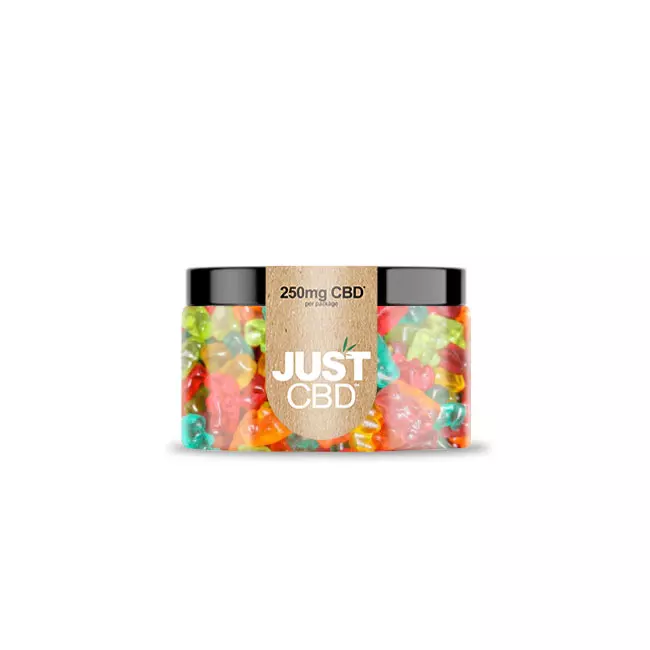Potential Mechanisms of Action
Understanding how cannabidiol (CBD) might influence mood and depression involves exploring its potential mechanisms of action. CBD’s interaction with the endocannabinoid system, its effects on serotonin receptors, and its role in inflammation and neurotransmitter regulation are key areas of investigation.
CBD’s Interaction with the Endocannabinoid System
CBD’s primary mechanism of action is believed to involve its interaction with the endocannabinoid system (ECS). This complex network of receptors and neurotransmitters plays a crucial role in regulating various physiological processes, including mood, sleep, appetite, and pain perception. CBD is thought to indirectly modulate the ECS by influencing the activity of enzymes responsible for producing and breaking down endocannabinoids, such as anandamide and 2-AG. By affecting these enzymatic processes, CBD can potentially influence the levels of endocannabinoids in the brain, thereby impacting their signaling pathways and downstream effects.
Impact on Neurotransmitters
CBD is also believed to exert its potential mood-boosting effects by interacting with serotonin receptors. Serotonin is a neurotransmitter widely recognized for its role in regulating mood, sleep, and anxiety. While CBD does not directly bind to serotonin receptors like selective serotonin reuptake inhibitors (SSRIs), studies suggest that it may indirectly influence serotonin signaling. This could involve modulating the release or uptake of serotonin or by affecting other neurotransmitters that interact with serotonin pathways.
Furthermore, research indicates that CBD possesses anti-inflammatory properties, and chronic inflammation is increasingly implicated in the development and progression of depression. By reducing inflammation in the brain and body, CBD may contribute to improving mood and alleviating depressive symptoms.
Research Findings and Evidence
The potential benefits of CBD gummies for mood enhancement and depression reduction are a subject of ongoing research. Studies are exploring various mechanisms by which CBD might exert these effects, including its interaction with the endocannabinoid system, influence on serotonin receptors, and anti-inflammatory properties.
Studies on CBD for Depression
Several studies have investigated the potential effects of CBD on depression. A 2019 study published in the Journal of Affective Disorders found that CBD significantly reduced anxiety and depressive symptoms in participants with social anxiety disorder.
Another study, published in Neurotherapeutics in 2020, reviewed multiple clinical trials and concluded that CBD showed promise as a potential treatment for depression, particularly when combined with traditional antidepressants.
However, it’s important to note that more research is needed to fully understand the long-term effects and optimal dosages of CBD for treating depression.
Clinical Trials and Their Results
Understanding how cannabidiol (CBD) might influence mood and depression involves exploring its potential mechanisms of action.

CBD’s interaction with the endocannabinoid system, its effects on serotonin receptors, and its role in inflammation and neurotransmitter regulation are key areas of investigation.
CBD’s primary mechanism of action is believed to involve its interaction with the endocannabinoid system (ECS). This complex network of receptors and neurotransmitters plays a crucial role in regulating various physiological processes, including mood, sleep, appetite, and pain perception. CBD is thought to indirectly modulate the ECS by influencing the activity of enzymes responsible for producing and breaking down endocannabinoids, such as anandamide and 2-AG. By affecting these enzymatic processes, CBD can potentially influence the levels of endocannabinoids in the brain, thereby impacting their signaling pathways and downstream effects.
CBD is also believed to exert its potential mood-boosting effects by interacting with serotonin receptors. Serotonin is a neurotransmitter widely recognized for its role in regulating mood, sleep, and anxiety. While CBD does not directly bind to serotonin receptors like selective serotonin reuptake inhibitors (SSRIs), studies suggest that it may indirectly influence serotonin signaling. This could involve modulating the release or uptake of serotonin or by affecting other neurotransmitters that interact with serotonin pathways.
Furthermore, research indicates that CBD possesses anti-inflammatory properties, and chronic inflammation is increasingly implicated in the development and progression of depression. By reducing inflammation in the brain and body, CBD may contribute to improving mood and alleviating depressive symptoms.
- A 2019 study published in the Journal of Affective Disorders found that CBD significantly reduced anxiety and depressive symptoms in participants with social anxiety disorder.
- Another study, published in Neurotherapeutics in 2020, reviewed multiple clinical trials and concluded that CBD showed promise as a potential treatment for depression, particularly when combined with traditional antidepressants.
However, it’s important to note that more research is needed to fully understand the long-term effects and optimal dosages of CBD for treating depression.
Limitations of Existing Research
Research findings on the effects of CBD gummies on mood and depression are promising but still limited. Several studies suggest potential benefits, including reduced anxiety and depressive symptoms.
For example, a 2019 study in the Journal of Affective Disorders found that CBD significantly decreased anxiety and depressive symptoms in individuals with social anxiety disorder. Additionally, a 2020 review published in Neurotherapeutics concluded that CBD shows promise as a potential treatment for depression, especially when used alongside conventional antidepressants.
Despite these encouraging findings, further research is necessary to confirm long-term effects and determine optimal dosages for treating depression with CBD gummies. Existing studies often have limitations such as small sample sizes, short durations, and varying methodologies, making it difficult to draw definitive conclusions. More rigorous, large-scale clinical trials are needed to fully understand the efficacy and safety of CBD gummies for mood disorders.
Dosage and Administration
Dosage and administration of CBD gummies can vary depending on factors such as individual body weight, metabolism, and the desired therapeutic effect. It is important to start with a low dose and gradually increase it as needed, while carefully monitoring for any potential side effects. Consulting with a healthcare professional is recommended to determine an appropriate dosage regimen based on individual needs and medical history.

Recommended Dosage Ranges
Dosage and administration of CBD gummies can vary depending on factors such as individual body weight, metabolism, and the desired therapeutic effect. It is important to start with a low dose and gradually increase it as needed, while carefully monitoring for any potential side effects. Consulting with a healthcare professional is recommended to determine an appropriate dosage regimen based on individual needs and medical history.
Recommended dosage ranges for CBD gummies typically fall between 5-20 milligrams per serving.
Factors Affecting Dosage
Dosage and administration of CBD gummies can vary depending on several factors.
Individual body weight, metabolism, and the desired therapeutic effect all play a role in determining the appropriate dosage. It is generally recommended to start with a low dose, around 5-10 milligrams of CBD per serving, and gradually increase it as needed while carefully monitoring for any potential side effects.
Consulting with a healthcare professional is highly advised to determine an individualized dosage regimen based on personal needs, medical history, and potential interactions with other medications.
Potential Side Effects and Interactions
Dosage and administration of CBD gummies can vary depending on factors such as individual body weight, metabolism, and the desired therapeutic effect. It is important to start with a low dose and gradually increase it as needed, while carefully monitoring for any potential side effects. Consulting with a healthcare professional is recommended to determine an appropriate dosage regimen based on individual needs and medical history.
Potential side effects of CBD gummies may include drowsiness, diarrhea, appetite changes, and fatigue. In some cases, CBD may interact with certain medications, such as blood thinners or antidepressants. It is crucial to inform your healthcare provider about all medications you are taking before using CBD gummies.
Considerations for Use
Understanding the potential benefits of CBD gummies for mood enhancement and depression reduction requires examining its mechanisms of action. CBD’s interaction with the endocannabinoid system, its effects on serotonin receptors, and its role in inflammation and neurotransmitter regulation are key areas of ongoing research.
Consulting with a Healthcare Professional
While research suggests potential benefits of CBD gummies for mood enhancement and depression reduction, it’s crucial to consult a healthcare professional before using them. They can help assess your individual needs, consider any potential interactions with medications you may be taking, and guide you on appropriate dosage and usage.
Remember, CBD gummies are not a substitute for professional medical advice or treatment for depression.
Individualized Treatment Plans
Considerations for use of CBD gummies for mood enhancement and depression reduction involve several factors. Individualized treatment plans should be developed in consultation with a healthcare professional.
It’s essential to start with a low dose and gradually increase it as needed while carefully monitoring for any potential side effects. Dosage recommendations can vary widely depending on individual factors like body weight, metabolism, and desired therapeutic effect. Consulting a healthcare professional is crucial for determining an appropriate dosage regimen.
Individuals taking medications, especially those that interact with CBD, should inform their healthcare provider before using CBD gummies to avoid potential adverse effects or drug interactions.
Remember, while promising research exists, more studies are needed to fully understand the long-term effects and optimal dosages of CBD gummies for treating depression. CBD gummies should not be considered a replacement for traditional medical treatments for mood disorders.
Alternative Therapies for Mood Disorders
When considering CBD gummies for mood enhancement or depression relief, several factors warrant attention. A healthcare professional’s guidance is essential in developing an individualized treatment plan.
Dosage is a crucial consideration. It should be adjusted based on individual needs, starting low and gradually increasing while monitoring for side effects. Body weight, metabolism, and desired therapeutic effect all influence appropriate dosage.
Individuals taking medications should consult their healthcare provider before using CBD gummies to avoid potential interactions.
Remember that while research suggests promising benefits of CBD gummies for mood disorders, more studies are needed to fully understand their long-term effects and optimal dosages. CBD gummies are not a substitute for professional medical advice or treatment.

Alternative therapies for mood disorders include:
- Psychotherapy: This involves working with a mental health professional to explore thoughts, feelings, and behaviors, developing coping mechanisms, and addressing underlying issues contributing to mood disorders.
- Lifestyle Modifications: Regular exercise, a balanced diet, adequate sleep, stress management techniques (e.g., yoga, meditation), and social support can positively impact mood.
- Transcranial Magnetic Stimulation (TMS): A non-invasive procedure that uses magnetic pulses to stimulate nerve activity in the brain, showing promise in treating depression.
- Light Therapy: Exposure to bright light, especially during winter months, can be beneficial for seasonal affective disorder (SAD).
It’s important to discuss various treatment options with a healthcare professional to determine the most appropriate approach based on individual needs and circumstances.
Affordable Gummies for Sleep and Anxiety
Explore cbd infused gummies at JustCBD
Check the entire post
Keep reading the full blog
- The Growing Demand For Baby Botox In Kingston Upon Thames Aesthetics - November 13, 2025
- Why Do I Suddenly Have A Turkey Neck? - November 2, 2025
- What Is The Best Procedure For Deep Wrinkles Around The Mouth? - October 30, 2025
